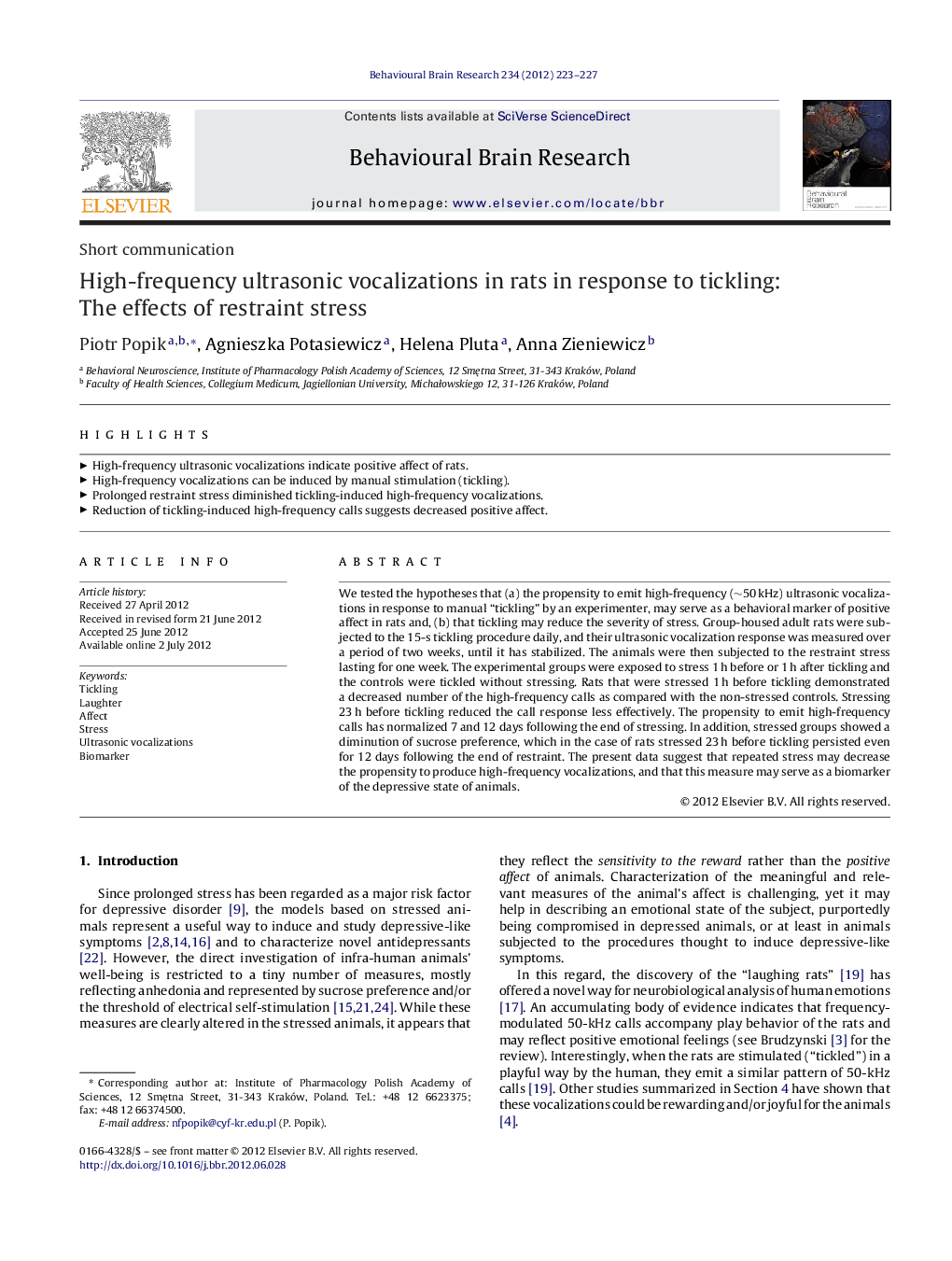| کد مقاله | کد نشریه | سال انتشار | مقاله انگلیسی | نسخه تمام متن |
|---|---|---|---|---|
| 4312965 | 1289978 | 2012 | 5 صفحه PDF | دانلود رایگان |

We tested the hypotheses that (a) the propensity to emit high-frequency (∼50 kHz) ultrasonic vocalizations in response to manual “tickling” by an experimenter, may serve as a behavioral marker of positive affect in rats and, (b) that tickling may reduce the severity of stress. Group-housed adult rats were subjected to the 15-s tickling procedure daily, and their ultrasonic vocalization response was measured over a period of two weeks, until it has stabilized. The animals were then subjected to the restraint stress lasting for one week. The experimental groups were exposed to stress 1 h before or 1 h after tickling and the controls were tickled without stressing. Rats that were stressed 1 h before tickling demonstrated a decreased number of the high-frequency calls as compared with the non-stressed controls. Stressing 23 h before tickling reduced the call response less effectively. The propensity to emit high-frequency calls has normalized 7 and 12 days following the end of stressing. In addition, stressed groups showed a diminution of sucrose preference, which in the case of rats stressed 23 h before tickling persisted even for 12 days following the end of restraint. The present data suggest that repeated stress may decrease the propensity to produce high-frequency vocalizations, and that this measure may serve as a biomarker of the depressive state of animals.
► High-frequency ultrasonic vocalizations indicate positive affect of rats.
► High-frequency vocalizations can be induced by manual stimulation (tickling).
► Prolonged restraint stress diminished tickling-induced high-frequency vocalizations.
► Reduction of tickling-induced high-frequency calls suggests decreased positive affect.
Journal: Behavioural Brain Research - Volume 234, Issue 2, 1 October 2012, Pages 223–227